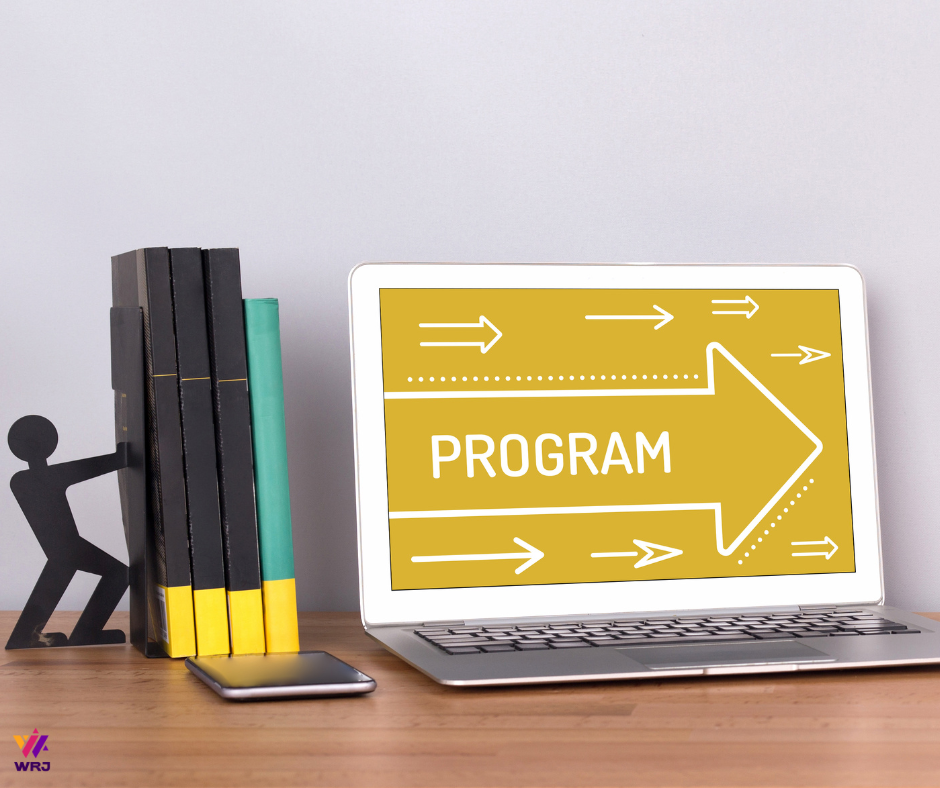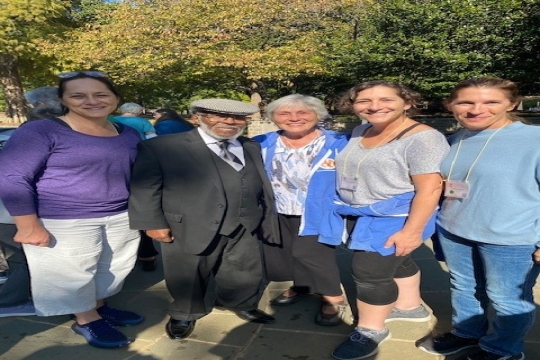
As we head toward the end of the calendar year, there are many programs to attend, lots of holidays to prepare for, and plenty of important work to contribute to. One facet of the important work that Women of Reform Judaism continues to commit itself to, for we can always do more and better ourselves as well as the communities we inhabit, is WRJ says STOP: An Initiative Against Sexual Harassment and Assault.
WRJ launched WRJ says STOP: An Initiative Against Sexual Harassment and Assault in 2022 against the backdrop of investigations into reports of egregious cases of sexual harassment, abuse, and misconduct in three of the Reform Movement’s institutions - the umbrella Union for Reform Judaism, our rabbinic organization Central Conference for American Rabbis, and our seminary, Hebrew Union College-Jewish Institute of Religion. We each hold the ongoing duty of bringing these tools and education to our local communities. Crucially, we must actively contribute to guaranteeing that our communities, synagogues, and institutions embody our ethical principles and values, fostering cultures of compassion and creating safe environments for everyone.
As the next part of this initiative, WRJ brings to you a webinar on educating and empowering people about sexual assault at 8pm ET/5pm PT on Monday, December 4. Please register today. Co-sponsored by the Union for Reform Judaism, Central Conference for American Rabbis, Hebrew Union College-Jewish Institute of Religion, Women’s Rabbinic Network, American Conference of Cantors, and Men of Reform Judaism, we are humbled and honored to have partnership in this continuation and commitment to t’shuvah (repentance).
On December 4, we will hear from Dr. Alissa R. Ackerman and Dr. Guila Benchimol, developers of the URJ’s 'Building a Very Narrow Bridge' Restorative Justice Project. This program will focus on listening and responding within the gender-based assault context. Folks will receive foundational information about the importance of proper language, having proactive conversations, and normalizing the discussion around gender-based harm. In addition, attendees will walk away with tools on how to handle disclosures of harm and survivor agency.
These are weighty topics, meaningful but tough conversations, and important but taxing ideas. Although individual processing and absorbing of this information is crucial, shared debriefing, discussion, and action is how we can actualize the lessons delivered and change our environments.
In being together, folks can unpack the takeaways, identify the ways that they apply and thus could be applied to one’s community, and have greater commitment—of not just the individual but a whole—to using the proper language, tools, and awareness. We recommend holding a watch party and/or shared discussion/debrief within your community for these very reasons.
There are several ways to host a watch party with a shared debrief. They could look like several things depending on your needs, resources, and accessibility:
-
Being in one shared physical space such as a synagogue or office, watching on one screen and viewing together in-person.
-
Attending separately or from your own home and joining a virtual community-, organization-, or congregation-based debrief after the session.
-
Joining on Zoom by yourself and having an in-person time scheduled the following day or so to process and debrief with others.
Once you’ve decided on the way in which you want to hold space and time for your watch party, what do you need to do to get ready for it? What should be there?
-
Share a flyer and/or graphic with the date, time, and location! If you’re holding the watch party and discussion in a communal space, make note of that. If due to accessibility reasons you’re planning on doing this virtually, make sure you include the Zoom registration link to the event.
-
Include details in upcoming emails, outreach, and any meetings in which it would be relevant to include.
-
Prepare for a discussion following the event.
-
Think of some prompts that will help folks unpack what they learned in a pair and share (turn to the person next to you/near you or go into small breakout groups and talk with that person about something you didn’t know before, something you found interesting, or something that stuck with you).
-
Ask questions around your specific group or community, about how you can integrate the language, tools, and best practices—on an individual level as well as a community-wide, organization-wide level.
-
Plan to come up with defined action steps or an action plan to make change within your environment, define goals, develop ways to check-in on progress and revisit goals, and identify roles and responsibilities.
-
Provide some sustenance for the program like beverages and snacks. Practicing t’shuvah (repentance) is not light work!
Who exactly should be a part of your watch party and following shared discussion? With so many co-sponsors to this initiative, and a wide variety of folks engaged in this work, a watch party and debrief could allow for incredibly important and necessary dialogue across different groups. Here’s some ideas for who could be a part of a watch party and discussion together:
-
A sisterhood and a brotherhood of the same synagogue.
-
Sisterhoods from different synagogues in the same or nearby communities, and similarly, brotherhoods.
-
A Tikkun Olam or social action committee at a synagogue.
-
Synagogue-wide viewing, including clergy, lay leaders, and members.
-
The board of an organization or synagogue.
-
A group of coworkers or those from the same organization/workplace.
-
A Hillel group on a college campus.
Whether you end up watching on your own screen at home in the company of those on the screen or you’re able to organize a watch party, we encourage you to share what you learn, debrief and discuss, and continue to educate and empower people about sexual assault awareness and prevention.
Thank you for your continued interest, commitment, and t’shuvah (repentance). We will see you on Zoom (whether you’re on a screen with others or sharing the spotlight with others) at 8pm ET/5pm PT on December 4!
Related Posts

The Path Forward on Abortion Resource Guide
%20-%20square4a84.jpg)
Women of B’nai Israel of Sacramento Responds to Migrant Crisis


